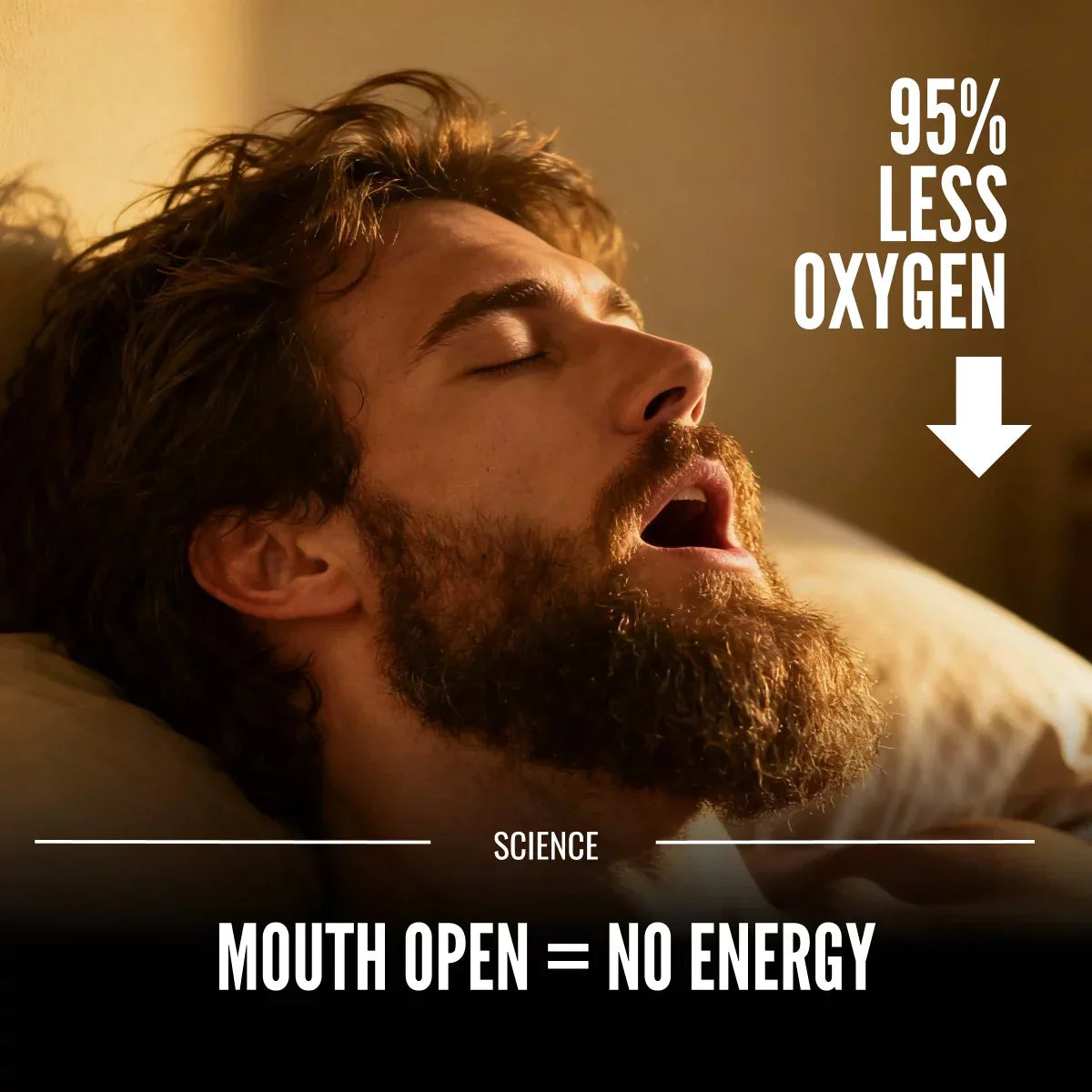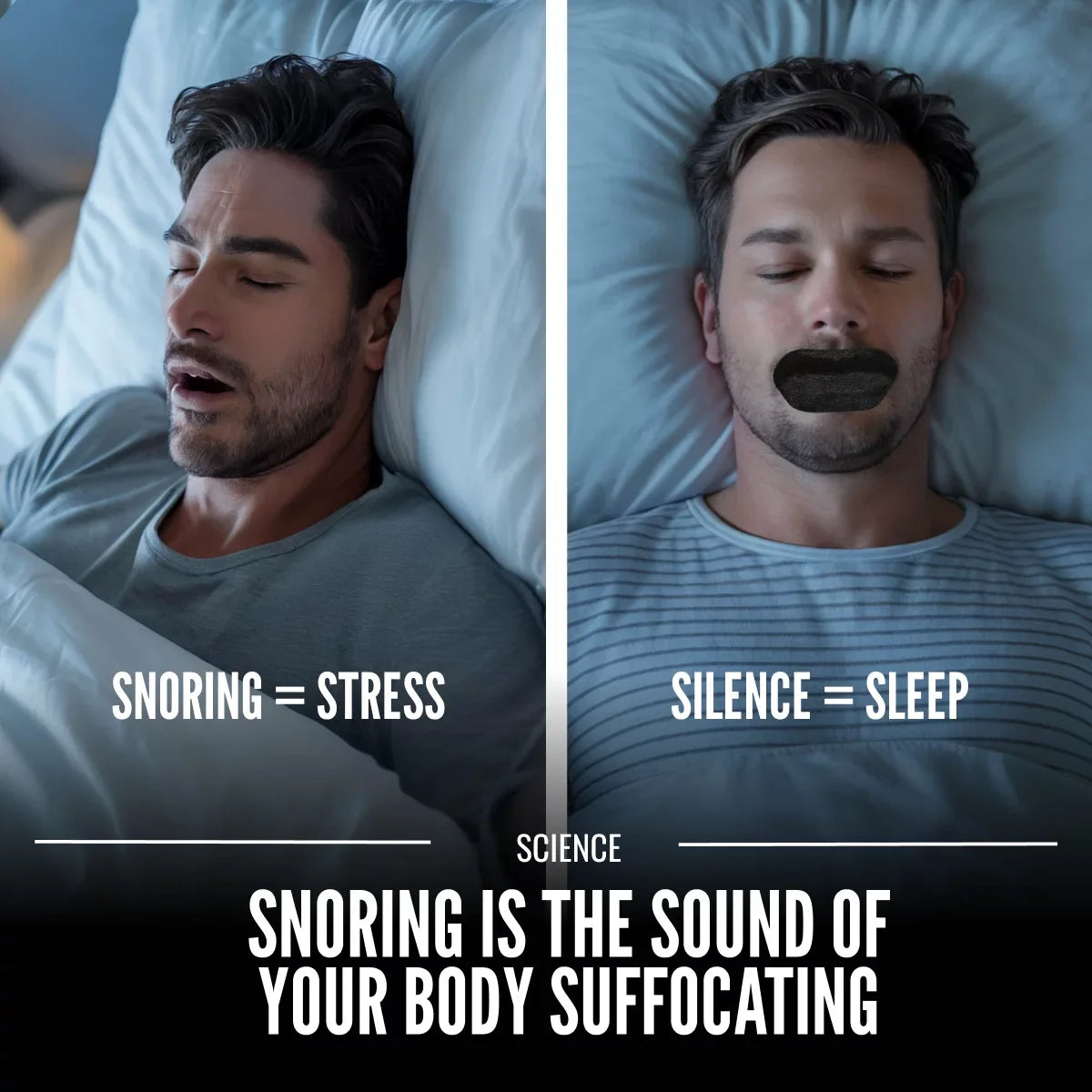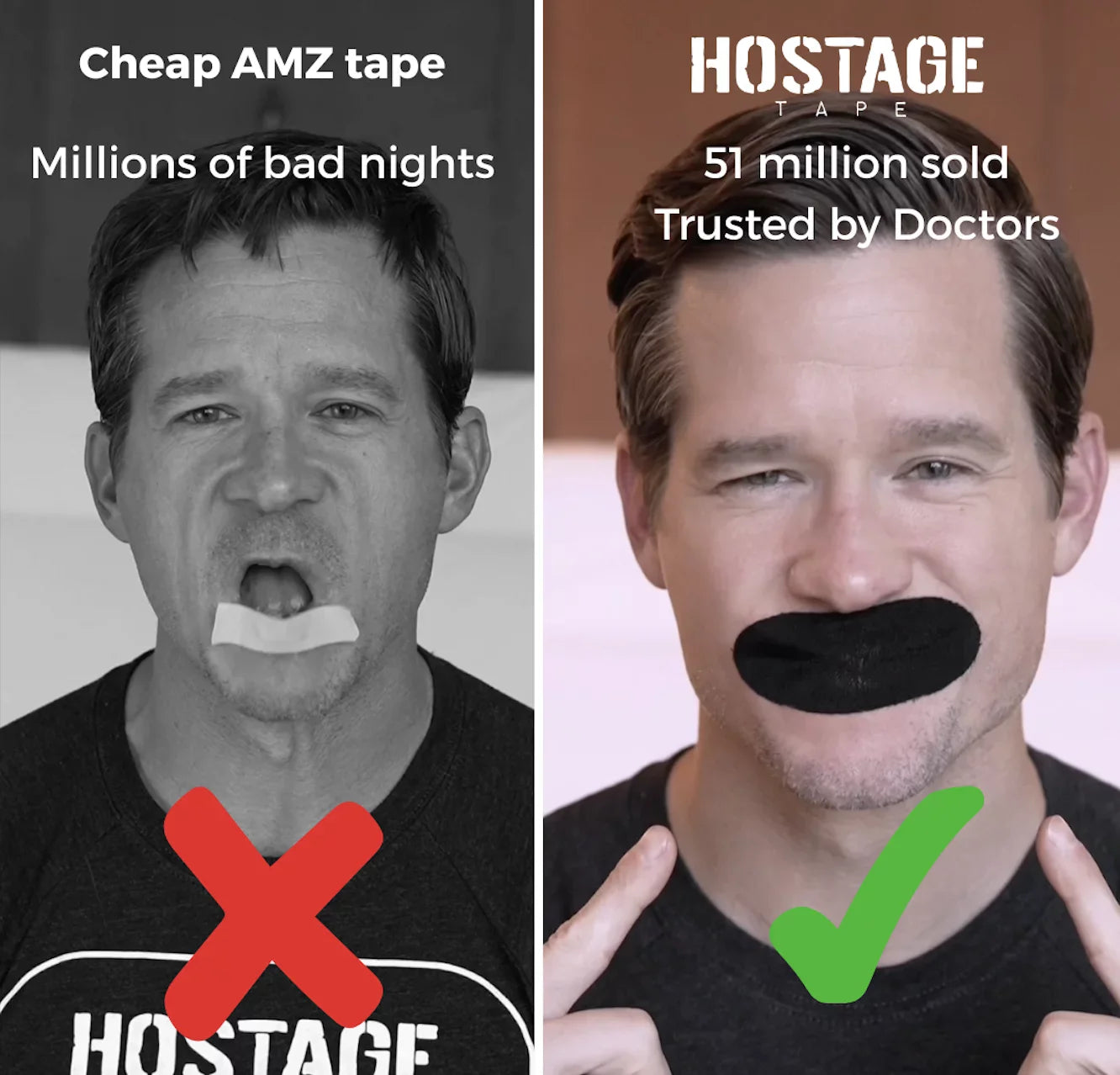Let’s set the scene.
It’s 2 a.m. You’re wide awake, heart ticking like a bomb, jaw dry as the desert, one hand searching for your water bottle and the other scrolling “natural sleep remedies” for the fifth night in a row. You’re exhausted but wired. Your body feels off, but you can’t explain why.
Then you read it online: “You’re probably chest breathing. You need to belly breathe.”
Wait… what?
There are types of breathing?
Yes.
And one kind tells your body, “you’re safe.”
The other tells it “we’re being chased by a bear and also possibly dying.”
Welcome to the overlooked warzone that is your breath.
Chest Breathing: Your Body’s False Alarm System
Chest breathing isn’t dramatic. It’s subtle. Deceptive. It masquerades as “normal.”
Your shoulders rise. Your chest puffs up. You think: “Cool, I’m alive.”
What you don’t realize is:
Your body thinks you’re under siege.
Every shallow chest breath is a fire alarm pulled in your nervous system.
This type of breathing:
-
Happens fast
-
Stays high in your lungs
-
Tells your brain to stay alert, stay tense, stay awake
Why it shows up:
-
Desk slouching
-
Chronic stress
-
Living in the 21st century
-
And the biggest culprit? Mouth breathing
Chest breathing is the symptom. Survival mode is the consequence.
And if your body’s on red alert, good luck falling asleep like a normal human.
Belly Breathing: Your Body’s Built-In Off Switch
Now picture this:
A baby asleep in a crib.
Their little belly rising and falling like a tide.
That? That’s how we were meant to breathe. Before stress, posture, and adulting ruined everything.
Belly breathing—or diaphragmatic breathing—is deeper. Slower. More primal.
It fills the lower part of your lungs, where oxygen transfer is most efficient.
It’s how your body whispers, “We’re good. Chill out. Time to recover.”
Benefits? Oh, just:
-
Activates your parasympathetic nervous system (your actual sleep switch)
-
Slows your heart rate and lowers blood pressure
-
Balances your CO₂ levels (which no one talks about but absolutely matters)
-
Unlocks deeper, longer sleep
This is the breath of warriors in recovery.
Of high performers.
Of people who don’t wake up at 3 a.m., panicking about whether there’s a demon in the corner of their bedroom, or not.
Plot Twist: You Can’t Belly Breathe While Mouth Breathing
You can meditate. You can belly-breathe during yoga. You can quote Wim Hof in public.
But the moment your jaw drops open at night?
You’ve thrown it all out the window.
Because mouth breathing forces chest breathing.
And chest breathing? Forces your body into low-level panic—even when unconscious.
You’re:
-
Over-breathing
-
Under-oxygenating
-
Activating stress hormones
-
Snoring, drying out, and waking up more broken than before
You are literally sleeping in survival mode.
Mouth breathing isn’t “just how you sleep”—it’s a hostage situation.
The Solution: Tape It. Train It. Take Back Your Nights.
You can’t monitor your breathing while you sleep. You’re unconscious.
But Hostage Tape can.
Our medical-grade mouth tape seals the deal—literally.
It keeps your mouth shut so your nose and diaphragm can do what they were built for:
-
Calm your nervous system
-
Deepen your breath
-
Trigger belly breathing all night long
-
Deliver oxygen like a five-star spa for your cells
Don’t let bad sleep (or snoring) from mouth breathing hold you or your partner hostage.
Free your breath. Tape your mouth. Wake up like the threat was neutralized hours ago.
So… Chest or Belly Breathing?
Let’s spell it out:
-
Chest breathing = stress, shallow sleep, survival mode
-
Belly breathing = calm, deep recovery, nervous system reprogramming
If you want better sleep, better focus, and better mornings, you don’t need more supplements. You need to breathe like your body isn’t being hunted.
Final Thoughts: Your Breath Is Either a Weapon or a Weakness
You breathe 20,000 times a day.
Make them count.
Train your body to breathe deeply. Seal your mouth at night. Give your nervous system the memo that it’s safe to rest.
Shop Hostage Tape now
And reclaim the breath your mandible keeps screwing up.
Want to Go Deeper? Start Here:
-
Mouth Breathing and the Brain: How You Might Be Starving Your Mind Every Night
-
Nasal Breathing and the Parasympathetic Nervous System: Your Nocturnal Revolution with Hostage Tape
-
How to Mouth Tape for Sleep: Your Escape Plan to Better Nights
Breathe better. Sleep deeper. Tape smarter.
Because your breath shouldn’t keep your body or your sleep hostage. We’re here to release you from the shackles of mouth breathing.






Share:
When to Exercise for Better Sleep: Timing Your Workouts So You Don’t Wake Up Feeling Like You Got Hit by a Bus
What Is the Best Position to Sleep In? (And Which Ones Secretly Wreck Your Nights Without Mercy)